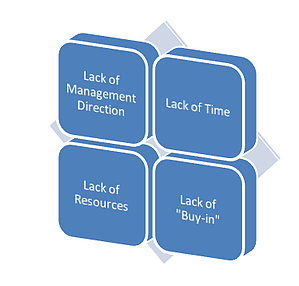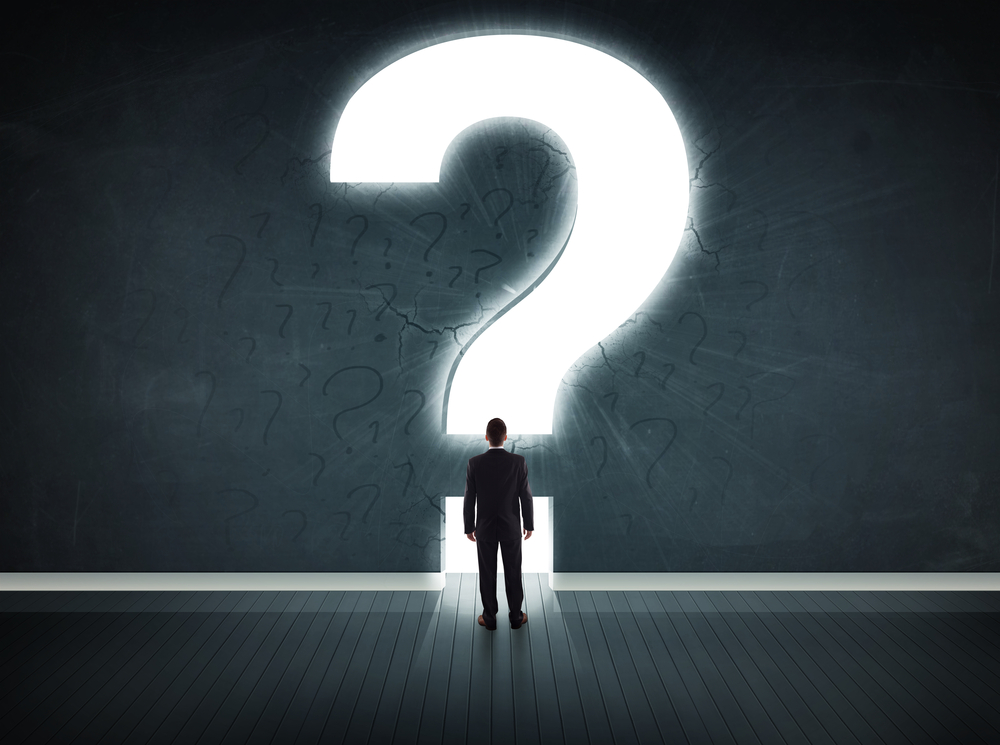ERP Implementation Partner Selection Tips and eBook
How to Find the Right ERP Implementation Partner Working with the right ERP implementation partner will be critical to the success of your ERP...
3 min read
Richard Cushing Thu, Sep 18, 2014

 As a Sage 100 ERP Partner, we work with our clients to help with the selection, implementation, customization, training and ongoing support of ERP software and other businesses tools to help their business grow. In part 1 of this blog series "Sage 100 ERP Partner Reviews Why Impovement Projects Fail: Part 1" we reviewed one of the four reasons why businesses are at risk of failure with project improvement plans which is lack of management direction. In this blog, we will review the next three common reasons for failure; lack of time, lack of resources and lack of "buy in." Hopefully, you will be well armed to avoid these failures in your next effort to improve your business.
As a Sage 100 ERP Partner, we work with our clients to help with the selection, implementation, customization, training and ongoing support of ERP software and other businesses tools to help their business grow. In part 1 of this blog series "Sage 100 ERP Partner Reviews Why Impovement Projects Fail: Part 1" we reviewed one of the four reasons why businesses are at risk of failure with project improvement plans which is lack of management direction. In this blog, we will review the next three common reasons for failure; lack of time, lack of resources and lack of "buy in." Hopefully, you will be well armed to avoid these failures in your next effort to improve your business.
My guess is that if you are involved in managing any aspect of a small to mid-sized business enterprise, you have experience more than one such failure. My further guess is that, if you have experienced one, you have experienced several failures of varying size and complexity.
Let's take a closer look at what's missing.The lack of time is really a symptom stemming from management's lack of direction. Because management is frequently stumbling a bit trying to really understand which lever to push or pull and when, precisely, pushing is the right action on the "lever," versus pulling, there is too much time spent in "firefighting" activities.
Often, because each of the presently understood "levers" has been pushed and pulled at various times over the years, and because the results have not been reliable or consistent when the known "levers" have been used, management feels stuck in "firefighting" mode. In fact, not infrequently, firefighting consumes so much management time and energy, that there is almost no time left to spend on actually figuring out how to move toward real and sustained improvement.
Lack of resources, too, is generally just outfall—an undesirable effect—stemming from a lack of direction.
Like managers, the resources that might otherwise be used to move the organization down the path of ongoing improvement are being consumed in the day-to-day battle of putting out fires long enough to serve the customers on a day-to-day basis.
Frequently, by the time we are brought in to help companies or their supply chains, there has been a lot of "water under the bridge." Management has already tried lots of different approaches to improvement over several years. Yet, to date, there is still little agreement on the fundamental causes of the problems that plague the operations (or supply chain), let alone finding agreement on the path to a remedy.
A good many of the manager and employees are simply burned-out from trying so many different things that didn't really bring significant improvement.
At this point, any "new and improved" ideas are met with a jaundiced eye and only half-hearted tries.
Nobody wants to buy-in to another loser attempt that consumes more time, more energy, and more money than anyone has to spare.
Interestingly, when we work with clients using the "Thinking Process," we never ask people to try something new that we brought in from the outside. We don't tell people how to improve their company or their supply chains, or how to make more money.
What we do is help them unlock what they already know—we call it "tribal knowledge"—and see what they already know in a fresh new light that helps them discover their own simple, reliable path toward a process of ongoing improvement.
This method automatically gets "buy-in" at the same time: nobody sabotages or fights against their own ideas and methods. If they created them, they will work hard to make them effective.
You, too, can stop dealing with their four major causes of transformation failure. You can learn to use the "Thinking Process" tools from Eliyahu Goldratt. There's plenty of information on their use and application on the Internet.
Get started today! We will review the other 3 major reasons that business transformation fail in part 2 of this blog series; lack of time, lack of resources, and lack of buy-in.
If you have questions about this blog or want to learn more about your ERP options CONTACT US, visit our WEBSITE, call 717-735-9109 or EMAIL sales@rklesolutions.com. One of our expert ERP business technology experts will be happy to help.
RKL eSolutions, LLC offers customized IT services to businesses in a wide variety of industries. As an authorized Sage provider, they implement and support Sage ERP X3, Sage 100 ERP, and Sage 500 ERP solutions. As a Microsoft Certified Gold partner, they also provide sales, installation and mentoring on products like Windows, Hyper‐V, Exchange, Active Directory, SQL Server, SharePoint, Terminal Services, Cisco, and VMware. With offices in Pennsylvania, Massachusetts, Virginia, Arizona, Florida, Ohio, and California, RKL eSolutions provides Sage ERP implementation, training, and support to companies throughout the U.S.
Visit www.rklesolutions.com to learn more.
How to Find the Right ERP Implementation Partner Working with the right ERP implementation partner will be critical to the success of your ERP...

3 Tips for Finding the Best ERP Manufacturing Software for Your Business If your manufacturing company is outgrowing your software the search for...

Grow Your Business with a New Manufacturing ERP Solution The economy is constantly changing, and manufacturing companies have been hit hard by recent...